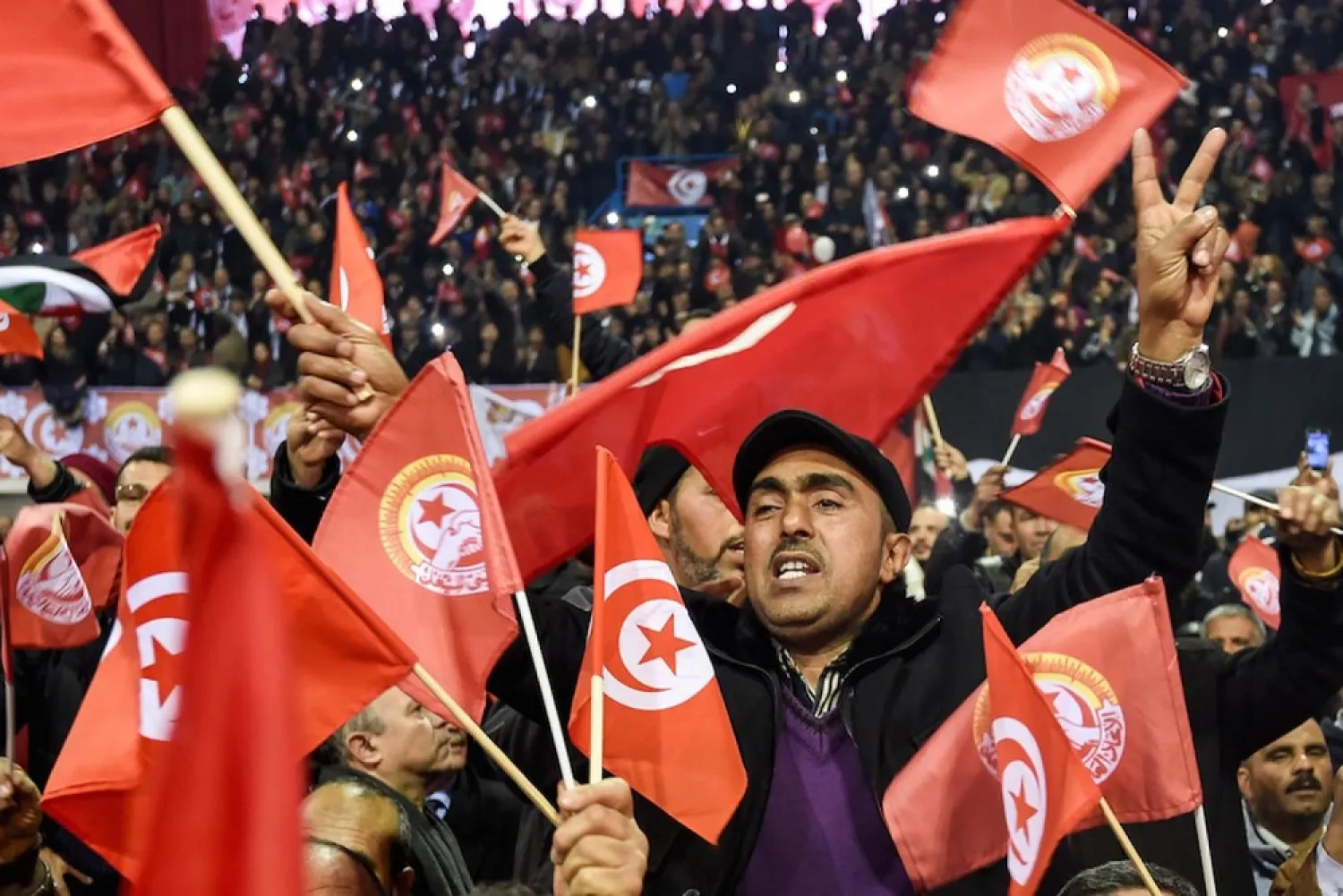The Tunisian General Labor Union (UGTT) is planning to organize general strikes across the country to protest against the government’s failure to meet their demands in securing employment and development opportunities.
Various economic sectors are preparing to join the protests as the country prepares to hold an open national dialogue on all political, economic, and social affairs.
The Union announced it will hold strikes in a number of states of the country, beginning in Gafsa, in southwestern Tunisia, on January 7, followed by another strike in the eastern-central Sfax region on the 12th.
The western-central Kasserine region will witness a general strike on January 26, as unions prepare to set a date for the general strike in Tozeur in the South.
Several regions went on general strikes, including Beja, Kairouan and Jendouba, after none of their development and employment demands were met.
The government announced a number of projects estimated at DT300 million in the southwestern Tataouine region, which witnessed protests and sit-ins disrupting oil production in the area.
Observers believe that the organization of various strikes in parallel with the preparation for the national dialogue aims to pressure the executive and legislative authorities.
They said trade union committees usually adopt this method in an attempt to influence negotiations with the ruling parties to obtain their demands.
Tunisian political analyst, Naji al-Abbasi, told Asharq Al-Awsat that the UGTT is aware of the current government's inability to meet the social demands.
He noted that the government established a number of ministerial boards to study social and economic demands, however, the lack of financial resources makes it difficult to fulfill them.
He stressed that the Union will continue their pressure, hoping to obtain more demands, given the absence of any support from the political parties, whose credibility has declined among the protesting youth.









